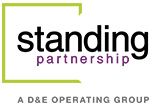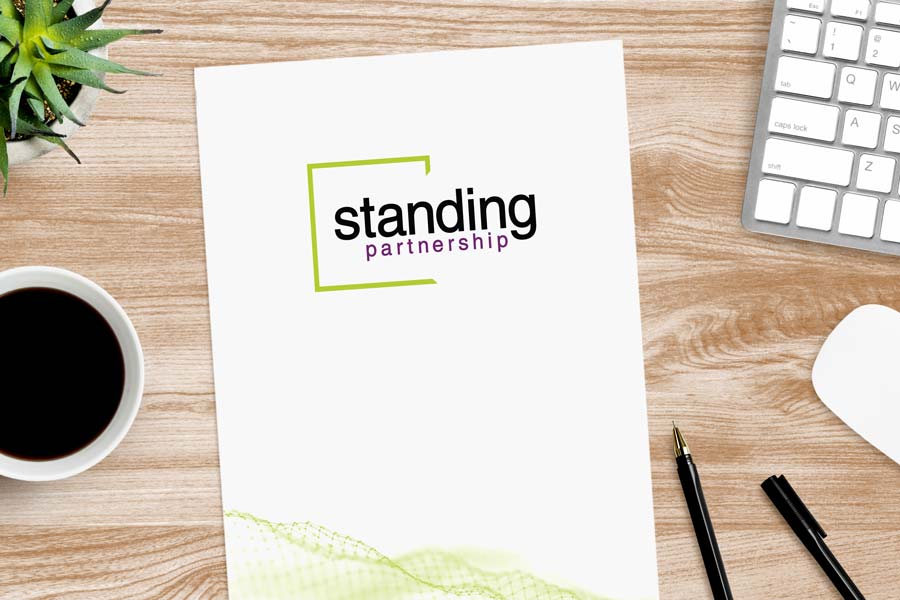2016 Study Finds Most Companies Operate Blindly To Risks That Can Destroy Their Reputation
Is your company confident in your reputation, but not as confident in your ability to spot any risks to your reputation? It's time to open your eyes to the risk in front of you.
2016 STUDY FINDS MOST COMPANIES OPERATE BLINDLY TO RISKS THAT CAN DESTROY THEIR REPUTATION
Reputational Risks Hit the Bottom Line Directly
The 2016 Reputational Risk Report
ST. LOUIS – April 7, 2016 – According to a new study from Standing Partnership, a reputation management consultancy, executives think their organizations do a good job building and managing their reputation. But when it comes to identifying reputational risks – the sort of events that have cost companies like BP, VW and Chipotle billions – executives are far less confident.
The Standing Partnership study, conducted by Edison Research, found that most senior executives – across a range of industries, including finance, health care and manufacturing – ranked their organizations above average in managing (72 percent) and building (78 percent) a positive reputation.
However, those same executives were far less certain about their team’s ability to identify reputational risks before they became crises (53 percent) or develop strategies to mitigate risk (45 percent).
“The true cost of reputational damage is often underestimated because it doesn’t always consider the full extent of the corrections that are needed; the ramifications typically extend well beyond the area of direct impact,” said Melissa Lackey, president and CEO of Standing Partnership. “Many crises that emerge could be minimized, or completely averted, with a more proactive strategy to identify, monitor and measure the various risks that can hurt a company’s reputation. Building cross-functional reputation risk auditing and planning into an organization’s accountability framework can help companies avoid significant hits to their brand, stakeholder perceptions and – most importantly – to their bottom line.”
Corporate reputation encompasses a series of intangible assets that are linked to business outcomes, such as market revenue, market share, customer loyalty, employee retention and price tolerance.
More than 1 in 4 out of the 1,000 senior executives surveyed said their organization has experienced a reputational issue, which led to quantifiable damages in lost revenue; increased operating, capital or regulatory costs; or destruction of shareholder value. Eighteen percent of those who experienced a reputational issue reported more than $500,000 in damages; an additional 18 percent reported losses in the $100,000-$500,000 range.
The top four takeaways from the study’s findings include:
- COOs are the most attuned to reputation risks. While presidents/CEOs tend to be more optimistic about the effectiveness of reputation management efforts, COOs have a better line of sight into early indicators of reputational problems. CEOs give an above-average grade to the organization for managing its reputation (79 percent, compared with 65 percent of COOs) and preventing reputational risks (68 percent, compared with 51 percent of COOs). COOs also expressed the highest level of dissatisfaction with spending on reputation management – 44 percent think they aren’t spending enough.
- Monitoring efforts are weak. Only 53 percent of respondents said their organization takes steps to monitor for reputational risk issues. Customer or client feedback is the most frequently cited tool, followed by audits, computer software or IT systems, and social media and employee monitoring. Not surprisingly, those who have experienced a reputational issue are much more aggressive about monitoring.
“Monitoring is foundational to an effective reputation management program; it’s an organization’s early warning system,” said Lackey. “Customer feedback is an essential component, but there is a much larger universe of opinions shaping the organization’s reputation to evaluate. Effective monitoring programs also track employees, shareholders, adversaries and other major influencer groups that can sway the public’s opinion of a company.”
- Customer satisfaction is the biggest reputational liability. Customer satisfaction, public perception and product quality were cited as the three most common causes of reputational issues in the past, as well as the biggest reputational liabilities going forward. While only 34 percent of executives said that IT/security issues have created a reputational problem for their organization in the past, 51 percent reported it is a potential future liability.
- Organizations prefer to fly solo. Seventy-one percent of respondents said their organization monitors reputational risk on their own, without the counsel of an outside business partner. Seventy-two percent of those who experienced a reputational issue were much more likely to bring in help. Responses were highly varied about which department within the organization has primary responsibility for monitoring reputational risk – with the president/CEO being most frequently cited (28 percent).
“It’s not surprising to see so many different answers about who has ownership over monitoring reputational risks. To succeed, you really need a cross-functional team that collaborates on these issues,” said Lackey. “However, politics and biases can present difficult roadblocks inside some organizations, so having an outside party audit for reputational risks can break down some of the barriers.”
The study data was collected through an online survey. The 2016 Reputational Risk Report can be found at http://resources.standingpartnership.com/reputational-risk-research.
For more information, please contact:
Melissa Lackey
President and CEO
Standing Partnership
314-287-6358 or mlackey@standingpartnership.com
>About Standing Partnership
Standing Partnership is a reputation management consultancy. Founded in 1991, the firm specializes in helping organizations build strong reputations by managing risk and stimulating growth. Standing Partnership’s team of experts helps organizations identify reputational risks, and develop strategies to mitigate risks and leverage insights for business growth. We specialize in working with clients who operate in complex business environments, especially those who deal with extensive cultural or market change or experience excessive regulation, legislation and litigation. We also help companies identify new opportunities for growth through improved marketing and sales alignment and lead generation strategies. For more information, visit www.standingpartnership.com or follow us on Twitter @standingteam.
About Edison Research
Edison Research (http://www.edisonresearch.com) conducts survey research and provides strategic information to a broad array of clients, including Activision, AMC Theatres, Disney, Dolby Laboratories, Google, Gulf News, the U.S. International Broadcasting Bureau, Pandora, Samsung, Siemens, Sony, St. Jude Children’s Hospital, Time Warner and Yahoo. Edison Research works with many of the largest American radio ownership groups, including Bonneville, Emmis, Entercom, CBS Radio and Radio One. Another specialty for Edison is its work for media companies throughout the world, conducting research in North America, South America, Africa, Asia, and Europe. Edison Research is the sole provider of election exit poll data for the National Election Pool comprised of ABC, CBS, CNN, FOX, NBC and the Associated Press. Edison is also the leading provider of consumer exit polling and has conducted face-to-face research in almost every imaginable venue.
###

